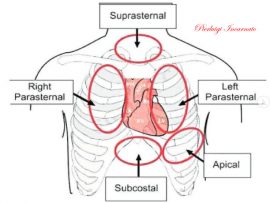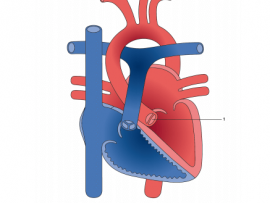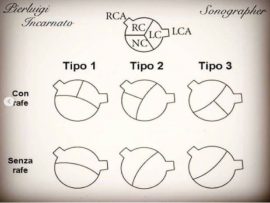Abstract Bicuspid aortic valve (BAV) is the most frequent congenital heart disease, with an incidence of approximately 1%. It can be silent and associated with normal valve function. However, a..
Read MorePierluigi Incarnato, TFCPC Cardiovascular and Abdominal Techinician Sonographer, Cardiac Physiologist at San Michele Nursing Home (Italy)
Read MorePatient with BAV bicuspid aortic valve and free valve perforation due to endocarditis undergone valve replacement with mechanical valve Livanova. Dr.Sam Zeraatian Nejad Davani, CEO of rockingham medical research ADKWA..
Read MoreThe aortic valve allows oxygen-rich blood to flow from the heart to the aorta. It prevents the blood from flowing back from the aorta into the heart when the pumping..
Read MoreThe echo lady; Lorena De Vanna, is a cardiac and respiratory physiologist graduated from the Central University of Venezuela. She currently holds British Society of Echocardiography accreditation and works..
Read MoreBicuspid valve Type 2 without Rafe, with formation of bacterial endocarditis. Pierluigi Incarnato, TFCPC Cardiovascular and Abdominal Techinician Sonographer, Cardiac Physiologist at San Michele Nursing Home (Italy)
Read MorePierluigi Incarnato, TFCPC Cardiovascular and Abdominal Techinician Sonographer, Cardiac Physiologist at San Michele Nursing Home (Italy)
Read MorePierluigi Incarnato, TFCPC Cardiovascular and Abdominal Techinician Sonographer, Cardiac Physiologist at San Michele Nursing Home (Italy)
Read MoreAbstract Background and Aim Although bicuspid aortic valve (BAV) anatomy might influence aortic aneurysm development, BAV‐related root involvement still lacks standardized surgical management. We aimed to evaluate late clinical outcomes..
Read MoreMohammed Zidan, MBBCH, M.Sc Cardiology (Cardiology, Echocardiography and interventional Cardilogy Specialist at Al-Azhar university), Cairo, Egypt.
Read MorePreamble Since 1980, the American College of Cardiology (ACC) and American Heart Association (AHA) have translated scientific evidence into clinical practice guidelines with recommendations to improve cardiovascular health. These guidelines,..
Read More








